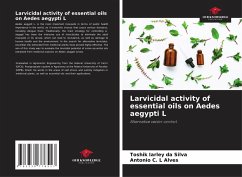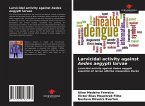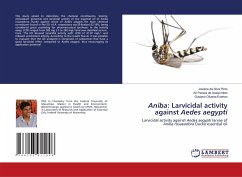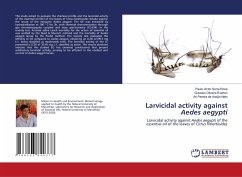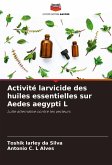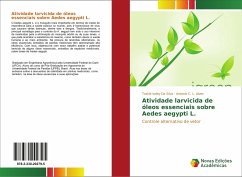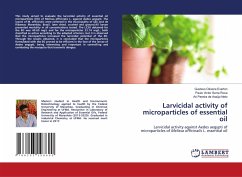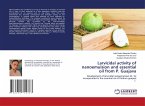Aedes aegypti L. is the most important mosquito in terms of public health importance in the world, as it transmits viruses that cause various diseases, including dengue fever. Traditionally, the main strategy for controlling A. aegypti has been the intensive use of insecticides to eliminate the adult mosquito or its larvae, which can lead to resistance, as well as damage to human health and the environment. In the search for alternative larvicides, essential oils extracted from medicinal plants have proved highly effective. The aim of this study was to evaluate the larvicidal potential of some essential oils extracted from medicinal species on Aedes aegypti larvae.
Bitte wählen Sie Ihr Anliegen aus.
Rechnungen
Retourenschein anfordern
Bestellstatus
Storno

